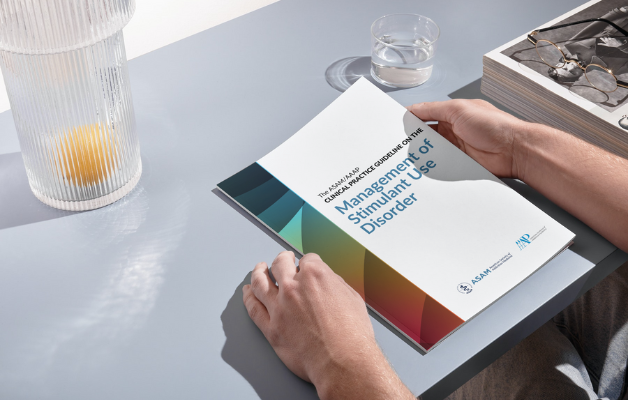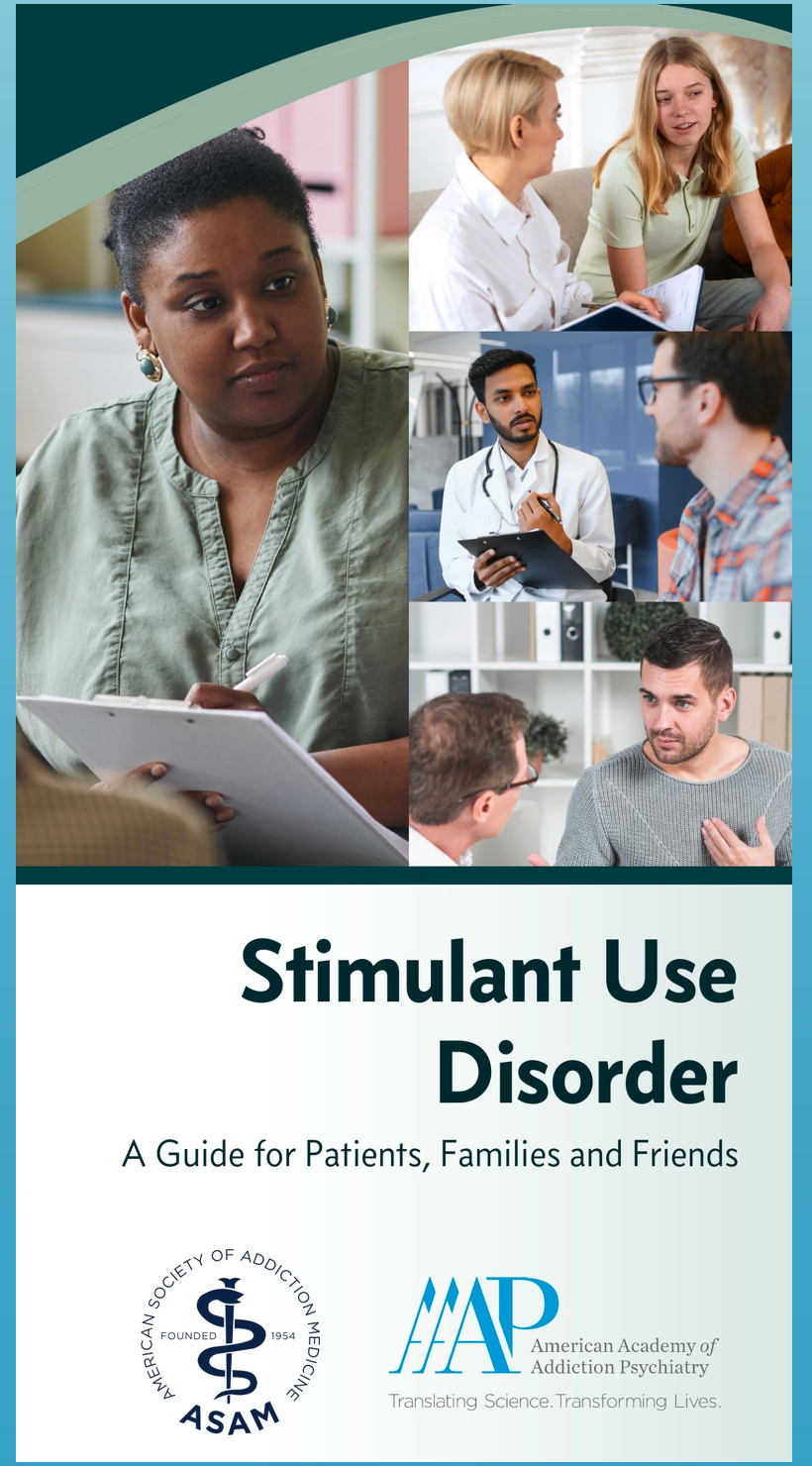Quality Care
Stimulant Use Disorder
Developed by ASAM and AAAP, this guideline focuses on the identification, diagnosis, treatment, and promotion of recovery for patients with stimulant use disorder, stimulant intoxication, and stimulant withdrawal.
Read Announcement
About the Guideline
Beyond overdose deaths, Stimulant Use Disorder (StUD) can cause a range of serious and long-term health problems, including cardiac, psychiatric, dental, and nutritional complications. Injection stimulant use increases the risk of contracting human immunodeficiency virus (HIV), viral hepatitis, and other infectious diseases such as infective endocarditis. The stable or rising availability of stimulants, low prices, and potential contamination of stimulants with high potency synthetic opioids such as fentanyl and other components such as levamisole are expected to exacerbate risks.
Taken together, these factors have propelled StUD and stimulant use to an urgent health crisis. This Guideline aims to assist clinicians in treating individuals with StUD (including adolescents and individuals who are pregnant), as well as individuals experiencing stimulant intoxication or withdrawal, and individuals who are at high risk of developing StUD. This Guideline draws on existing empirical evidence and clinical judgment with the goal of improving the quality of care for people with StUD.
Evidence-to-Decision Tables, Summary of Evidence, Relevant Citations, and CGC Judgements
CME-Webinar Series
Elevate your skills and gain the expertise to navigate the complexities of treating stimulant disorders through our webinar series, focusing on the "ASAM/AAAP Clinical Practice Guideline for Stimulant Use Disorder Management". Participants will develop practical ways to integrate current best practices into their daily clinical routines, fostering improved patient outcomes and advancing addiction treatment practices.
Webinar Series Topics
- Stimulant Use Prevention and Harm Reduction
- Management of Stimulant Intoxication and Withdrawal
- Behavioral Treatments for Stimulant Use
- Medication Management for Stimulant Use Disorder
Provider Pocket Guide
Patient Pocket Guide

Funding:
The development of this Guideline was generously funded with contract support from the Centers for Disease Control and Prevention (CDC) and the National Institute on Drug Abuse (NIDA).
Endorsements:
ASAM and AAAP are honored that this clinical practice guideline has been endorsed by: The American College of Medical Toxicology, The American Society for Adolescent Psychiatry, and The American Society of Addiction Nursing.
